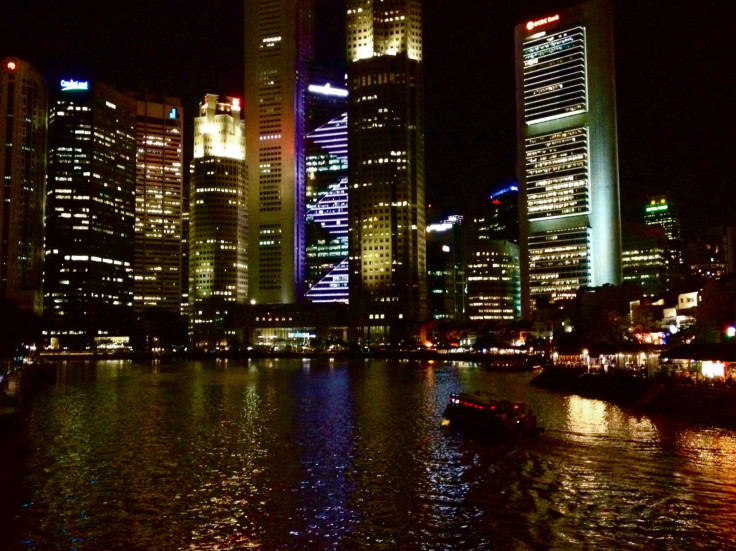Singaporeans 'Unhappiest' Workers In Asia, Indians 'Happiest': Randstad

Indian workers are the happiest employees in Asia, according to the Randstad's World of Work Report, a survey conducted by the Dutch-based recruiting firm Randstad Group, while Singaporeans -- residents of one of the wealthiest states in the world -- are the unhappiest.
Randstad’s study determined that despite its high income and advanced society, Singapore is facing rising social discontent due to climbing consumer prices and competition from an influx of foreign workers. Moreover, its professional workers feel burdened by a hostile, or “unsuitable,” corporate culture, difficult supervisors and increasing demands from their companies. Almost two-thirds (64 percent) of Singaporean workers plan to quit their jobs over the next 12 months, while another 23 percent said they felt unmotivated.
In India, however, 70 percent of workers said they felt “challenged, motivated and mentored” in their jobs, the survey noted. India’s high ranking elicited reactions ranging from disbelief to pride from readers of the Times of India newspaper. “Amit Choudhary” sarcastically pointed out that Indian workers are probably “happy” because they don’t have to do too much on the job. “No surprise, with archaic labour laws, the [workers] can avoid work, strike or do anything they want & get away with it,” Amit wrote. “Most accidents happen in industries due to workers' fault, but it's the management which is held guilty.”
But “K. P. S. Pillai” took the results as a ringing endorsement for the ruling Congress Party facing re-election later this year. “People in India are happy, that is why Congress is always winning; [in the] coming elections also Congress will be back in power,” Pillai declared. Someone named Taz Mania from the tech hub city of Bangalore, stated, perhaps with tongue in cheek: “We are a happy lot, despite all the corruption that is going all around us.”
But another commenter denounced the Randstad study as bogus. “This is a big lie,” the person wrote. “Indians rioted in Singapore, in Malaysia, in Moscow, in Germany. Indians are the most disliked and unhappiest, trouble makers.”
As for Singapore, not only are its workers dissatisfied but so are its people, in a more general sense. A poll conducted in 2011 by Gallup revealed that Singaporeans are not only the unhappiest people on the planet, but also the most unemotional. The public in the wealthy superstate even ranked lower than residents of poverty-stricken or war-torn nations like Iraq, Yemen, Afghanistan and Haiti. In that poll, Gallup asked respondents in 148 countries about having “positive emotions” – in Singapore, less than half (46 percent) said they had a happy experience in the previous few days. (In the happiest country on earth according to this poll, Panama, 90 percent enjoyed positive emotions.) In 2012, a subsequent Gallup poll showed that the happiness index in Singapore improved a bit.
Daniel Wong, a learning and personal development expert and certified youth counselor, addressed the issue of Singaporean mental states on Yahoo. “Anyone who lives here knows that Singapore has issues it needs to tackle: cost of living, job creation, education, public transportation, and immigration policy, just to name a few,” he wrote. “Unhappy Singaporeans claim that it’s precisely because of these issues that they’re unhappy.” Wong suggested that Singaporeans need to adjust their values and expectations in order to become happier.
A blogger on The RealSingapore.com explained why his countrymen and women are so down in the dumps, despite their high incomes and sophistication. “Singapore’s [low] ranking just goes to show that wealth certainly does not mean happiness,” the blogger wrote. “How can you feel happy when you are only just getting by but at the same time you see others in your country earning millions and living the high life? There are many people in Singapore who are struggling to get by but at the same time, Singapore has the nickname ‘playground’ for the rich.” The blogger further noted that Singaporeans work longer hours than anyone else in the world, meaning that many citizens cannot enjoy a good night's sleep or be well rested. “This obviously has an impact on moods and the ability to work well,” he said.
“Another factor which contributes to Singapore’s unhappiness is the level of stress and the feeling that without working, we ‘cannot make it’ in the future. We need to work for our retirement and we need to work to pay for our children’s healthcare, education, living expenses and our houses. Without working and saving, we will not be able to survive. This is the mentality that drives stress in Singapore and certainly does not lead to a happy life.”
© Copyright IBTimes 2024. All rights reserved.





















